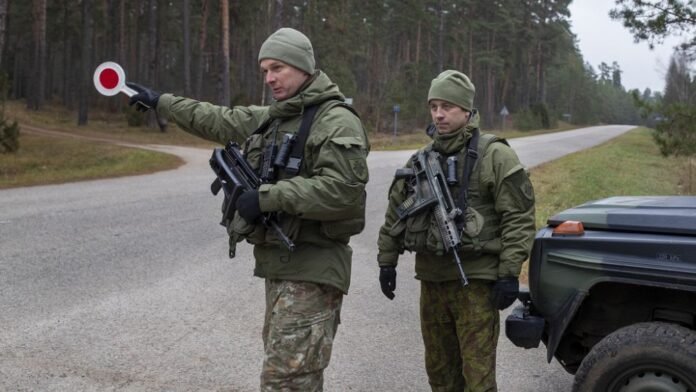The head of Lithuania’s Border Guard Service told Euronews that the country has “raised its surveillance up to the maximum level” amid concerns of Russian provocation during the NATO leaders summit in Vilnius
Over the Neman River which runs between Lithuania and Kaliningrad Oblast, an enclave of the Russian Federation, is the Queen Louise Bridge and the border crossing between the two countries.
Tensions over Russia’s illegal invasion of Ukraine have forced Lithuania, an EU Member State, to strengthen its border controls. The crossing is now closed to car traffic.
Some Lithuanians cut themselves off from their Russian neighbours. But others, like Natasha, continue to take this route, now on foot.
“If your relatives live in Europe, it’s obvious, but it doesn’t always work out that way, and our grandmothers, who are old, who you want to see again, are not to be blamed,” she told Euronews.
“We are going [to the border], and we don’t even know what the changes may be, they may even just not let you pass.”
The potential for Russian provocation amid the NATO summit which is taking place in Lithuania’s capital of Vilnius on Tuesday means the state borders are even more heavily guarded.
“We raised our surveillance up to the maximum level,” explained Rustam Liubaev, Head of the Lithuanian Border Guard Service.
“In fact, we have introduced a number of measures at the border, starting from the deployment of additional staff, also introduced technical system cooperation with our partners at the national level as well as international.”
Lithuania’s southeastern border with Belarus, a popular migration route, has also seen an increase in cautionary measures. Last year, only 34 asylum applications were accepted.
“That basically shows that no individual assessment is performed on the border,” said Emilija Svobaite from Sienos Grupe, a team that helps migrants at the border.
Ahmed from Iraq tried several times before he was heard. His arguments were recognised and he was granted asylum in Lithuania.
“My country is very dangerous. I tried three times to come to Lithuania but the police caught me and they take me to come back to Minsk,” he revealed.
However, activists argue that these small numbers do not reflect reality.
“[The Lithuanian] government always claims that it [has] stopped migration but the fact is that they only announce the numbers of people who are pushed back but we don’t know success stories. We really see that people are still going.”


